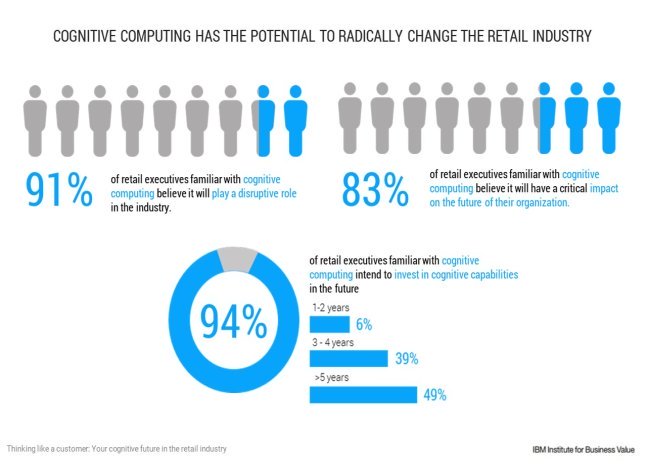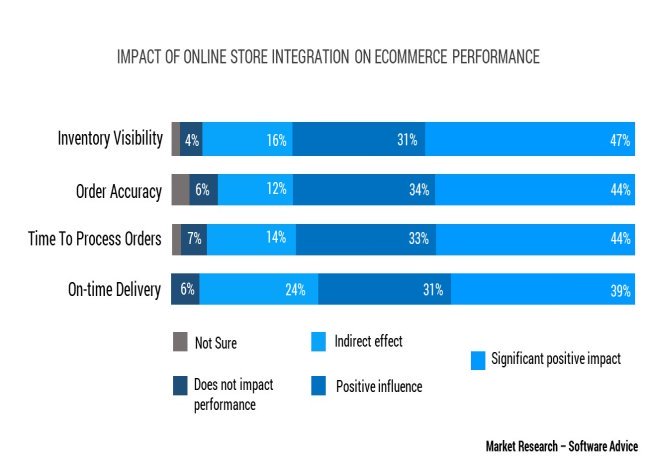A fast-evolving distribution landscape and the growth of B2B customer expectations nudge B2B companies into the digital transformation. According to the recent report, 76% of retail executives across Europe and the USA have already built a B2B e-commerce ecosystem and 39% of them reported the eCommerce site is their main sales channel.
And the upcoming year will be a winning time for B2B retailers. Forrester predicts that by 2019, the B2B e-Commerce market will be worth $1.1T compared to the B2C market at $480B.
Let’s deep dive into a B2B ecommerce future and find out where retail executives are planning to invest next year.
1.Cognitive Commerce
The main difference between AI and cognitive computing is that the latter unites a human and a machine, so they can learn from each other and collaborate in a more powerful way. With possibilities of cognitive technologies commerce enterprises can gather the richer and more personalized data about their customers. 94% of retail executives already planned to invest in cognitive technologies in the nearest future (IBM Institute for Business Value’s report).
- Predicting a future demand for the product
- Product recommendations for upselling and cross selling
- Price optimization according to a competitor’s pricing or supply constraints and customers behavior
- Customers’ spending trends and a shopper history
2. Multichannel Integrations
The key to an every B2B ecommerce effective ecosystem is software. The latest research shows that 96% of retailers believe it is business-critical to integrate an eCommerce platform with the ERP system and others automated solutions.
3. Self-Service Portal
Today B2B buyers become more independent and they expect to be treated with just the same shopping experience as Amazon provides, offering even more specific products or services. They want to make online researches, place order or request a quote by their own without addressing to the suppliers. Forrester actually predicts that 1 million U.S. B2B sales people will lose their jobs to self-service e-commerce by 2020. The main benefits of delivering a self-serve experience is increasing the sales force power by evolving them into more strategic activities than just, for instance, an order taking. By implementation the previous trend (Multichannel Integrations), B2B retailers can easily track a consumer journey and figure out exactly what product or services they want. The effective digital self-service portal can:- Minimize overall cost of pre-sales activities
- Enable customers the access to relevant and easy buying experience
- Increase deal velocity lift
 Click Here to Check Out eCommerce Trends for 2021
Click Here to Check Out eCommerce Trends for 2021
Thanks for sharing informative article. As per Forrester predicts that by 2019, the B2B e-Commerce market will be worth $1.1T compared to the B2C market at $480B.
Great selection of words and great points about B2b marketing you are discussing thanks for sharing.
this is an amazing article … thank you for sharing with us .
Incredible determination of words and extraordinary focuses about B2b promoting you are examining a debt of gratitude is in order for sharing.
Great article!
Thanks!